04 December 2023 - 27 March 2024
Event Date(s)/Period(s)
04, 6-8, 12 December 2023 and 16 January; 08, 21, 27 March 2024
Organised by:
Centre for Medical Ethics and Law (CMEL)
HA series of conferences, talks and lectures were offered by the Department of Orthopaedics and Traumatology, School of Clinical Medicine from December 2023 to March 2024:
Book Talk – The Law and Regulation of Public Health: Global Perspectives on Hong Kong (Routledge New York, 2024) with author Prof Eric C. Ip
Public health law has been a subject of much controversy and contestation, especially since the COVID-19 pandemic. This timely book inquires into the foundational principles of a form of public health law that takes seriously the inherent dignity of the human person. Written from a multidisciplinary perspective, this illuminating study makes the case that the rule of law, just as much as population health, is an essential determinant of human well-being.
Choosing the case of the Hong Kong, where life expectancy is among the highest in the world, yet whose well-established rule of law tradition is oft perceived to be under strain, in describing the central dilemmas of public health law, it makes an original contribution to our knowledge of comparative public health law and public health ethics. Situating Hong Kong’s public health law in the context of global health, The Law and Regulation of Public Health should appeal across the world to students and scholars of public health, medical law, public law, comparative law, and international law. It accessibly explains the law to epidemiologists and public health policymakers, and public health to jurists and legal practitioners.
This book lucidly urges professionals of public health and law to reflect on how the myriad legal instruments and legal institutions should best be used to promote and protect public health in ways that are at once ethical and lawful. It is a must read for anyone who is interested in gaining insights into public health law and regulation in this highly internationalised Chinese Special Administrative Region.
Author and speaker: Professor Eric C. Ip (葉子暘), Centre for Medical Ethics and Law and Faculty of Law, HKU
Event Page: https://cmel.hku.hk/events/book-talk-the-law-and-regulation-of-public-health/
Reproductive Autonomy: The Impact of the Pandemic and Recent Jurisprudence
The pandemic gave researchers an opportunity to study the efficacy and safety of telemedicine abortion and self-managed abortion. Feminist organisations also organised to provide cross-border services and far more women now know how to obtain and use abortion pills. This can be empowering, not only during public emergencies but also when legal rights are suddenly taken away. Unfortunately, for women who require surgical abortion care, overly strict laws still lead to tragic outcomes. This is why treaty-monitoring bodies and courts are gradually recognizing a right to reproductive autonomy under regional and international human rights law.
Speaker: Carole J. Petersen, Cades Foundation Professor of Law, William S. Richardson School of Law, University of Hawaii at Manoa
Event Page: https://cmel.hku.hk/events/reproductive-autonomy-the-impact-of-the-pandemic-and-recent-jurisprudence/
Intellectual Property, COVID-19, and the Next Pandemic: Diagnosing Problems, Developing Cures
What is the role of intellectual property in resolving public health crises such as the COVID-19 pandemic? Professor Sunder will chronicle the history and lessons learned with respect to intellectual property during the COVID-19 pandemic and make recommendations for how retooling intellectual property may offer a cure as the world prepares for the next pandemic. She will also diagnose a number of causes for the inequitable distribution of life-saving COVID-19 vaccines. Going further, Professor Sunder will make concrete suggestions for reform, including delinking vaccine development from monopoly rights in technology, enhanced legal requirements under national and international law for sharing publicly funded technologies in pandemic times, and funding by rich nations to former colonies to build local vaccine manufacturing capacity in low and middle-income countries.
Speaker: Prof Madhavi Sunder, Frank Sherry Professor of Intellectual Property Law, Georgetown University Law
Event Page: https://cmel.hku.hk/events/intellectual-property-covid-19-and-the-next-pandemic-diagnosing-problems-developing-cures/
Solutions to the Global Health Crisis
The burden of both infectious and noncommunicable diseases are unequally distributed throughout the world. With rare exceptions, the residents of wealthy countries enjoy longer and more healthy lives than the residents of poor countries. One of the many causes of this disparity is that the vaccines and medicines necessary to combat diseases are more readily available in wealthy countries. The limits on access, in turn, are partly attributable to intellectual-property law and related legal doctrines. To reduce inequality and the unnecessary loss of life, we can and must reform the relevant dimensions of the legal systems of all countries. Unfortunately, that is no easy task. Increasing access to existing drugs while preserving incentives to create new vaccines and medicines requires coordinating several legal reforms. This lecture will review the most promising of the reform proposals that scholars and lawmakers are currently considering and outline a composite solution.
Speaker: Professor William Fisher, Wilmer Hale Professor of Intellectual Property Law, Harvard Law School
Event Page: https://cmel.hku.hk/events/solutions-to-the-global-health-crisis-cpd/
‘One Justice in One Digital Health’ Conference
This meeting seeks to consider current trends in the digitalisation of One Health initiatives, particularly those directed at mitigating harms relating to antimicrobial resistance (AMR), and their implications on data justice (using Linnet Taylor’s conception as a general reference point). Sub-themes that we hope to address in this conference include: (1) Different conceptions of data justice in international law and global health ethics; (2) Barriers (technical and non-technical) to the effective use of digital tools (including artificial intelligence) in addressing AMR concerns; and (3) Policy and other measures that may be considered in response to the aforementioned barriers.
Event page: https://cmel.hku.hk/events/data-justice-in-one-digital-health/
‘Regulatory Governance of Genomics & Reproductive Technologies’ Conference
Recent advances in genetics and human reproductive technologies continue to present distinctive ethical and legal challenges. For instance, advances in high-throughput sequencing technologies have enabled the detection of chromosomal abnormalities in a foetus through non-invasive prenatal testing (or NIPT). Expanded testing conducted in NIPT has further raised concerns as to whether a child’s right to an open future requires parental freedoms to be curtailed. In a research context, it is as yet unclear whether and when actionable genomic results in a research biobank should be returned to an individual or otherwise shared with third parties who could potentially benefit from having access to these results. In this international conference, leading scholars examine the nature and implications of the regulatory governance of emerging genetic and reproductive technologies, as well as the rise of the regulatory state in promoting biomedical research and development (R&D) through the use of direct and indirect rules, and in the variety of regulatory regimes involving non-state actors (e.g. private regulation, self-regulation and civil regulation) that have emerged.
Event page: https://cmel.hku.hk/events/regulatory-governance-of-emerging-health-technologies/
WYNG-HATTON Lecture 2023: Smart Regulation for Medical Innovation
WYNG-Hatton Lecture 2023 has been cited in a high-level report, the Cass Review, for the National Health Service in the United Kingdom as follows (Independent review of gender identity services for children and young people: Final report, April 2024, para. 20.10): https://cass.independent-review.uk/home/publications/final-report/
‘20.10 At a local level regulation of innovation should be integrated with regulation of
clinical care. Responsible innovation requires anticipatory governance processes to be
put in place, organisational safeguards and submission of innovation to external review.
Reporting must include failure as well as success (Centre for Medical Ethics and Law
HKU, 2024 [video]).
…
Recommendation 32:
Wider guidance applicable to all NHS services should be developed to support providers and commissioners to ensure that innovation is encouraged but that there is appropriate scrutiny and clinical governance to avoid incremental creep of practice in the absence of evidence.
…
References
…
Centre for Medical Ethics and Law HKU. (2024, January 12). Wyng-Hatton Lecture 2023: Smart regulation for medical innovation [Video]. YouTube. https://www.youtube.com/watch?v=zBNXDqax91o’
Abstract: Medical innovation is desirable for clinical and economic reasons, but there is no consensus on the best regulatory approach to promote it. The paradigm for the regulation of medical research is a gatekeeping system but in the era of increasingly personalised medicine and rapid technological development, this is perceived by some as an anachronistic barrier to scientific advance, an unjustified bureaucratic cost, and a mechanism that frustrates consumer expectations. Yet, in the absence of the regulatory protection that obtaining permission provides, patients may face unacceptable risks and innovators are exposed to unreasonable risk of civil and criminal liability should mishaps occur. A series of UK court decisions on innovative treatments for young people, including Pentosan Polysulphate treatment for nvCJD (Simms), Proton Beam Therapy (King) nucleoside therapy (Gard), puberty blockers (Tavistock) have exposed the vices that undermine trust in innovation but also help us to identify the virtues that responsible innovators should display. Smart regulation is required to promote those virtues without creating unnecessary bureaucratic hurdles. An unwieldy system of prior ethics committee approval can be avoided if we can use markers of trustworthiness as a basis of the licence to innovate.
Speaker: Professor Sir Jonathan Montgomery, Professor of HealthCare Law, University College London
Event page: https://cmel.hku.hk/events/wyng-hatton-lectures-2023/


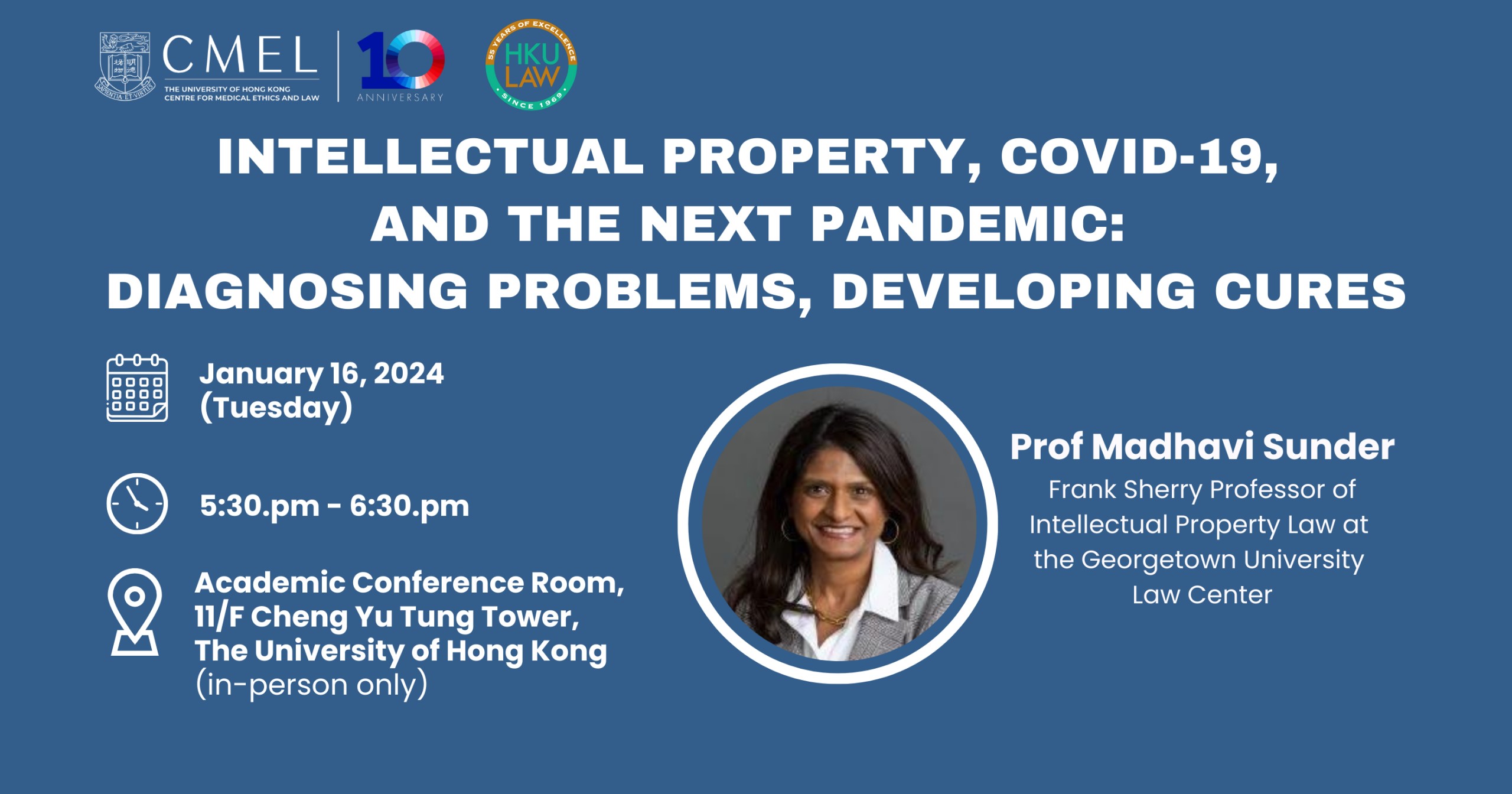
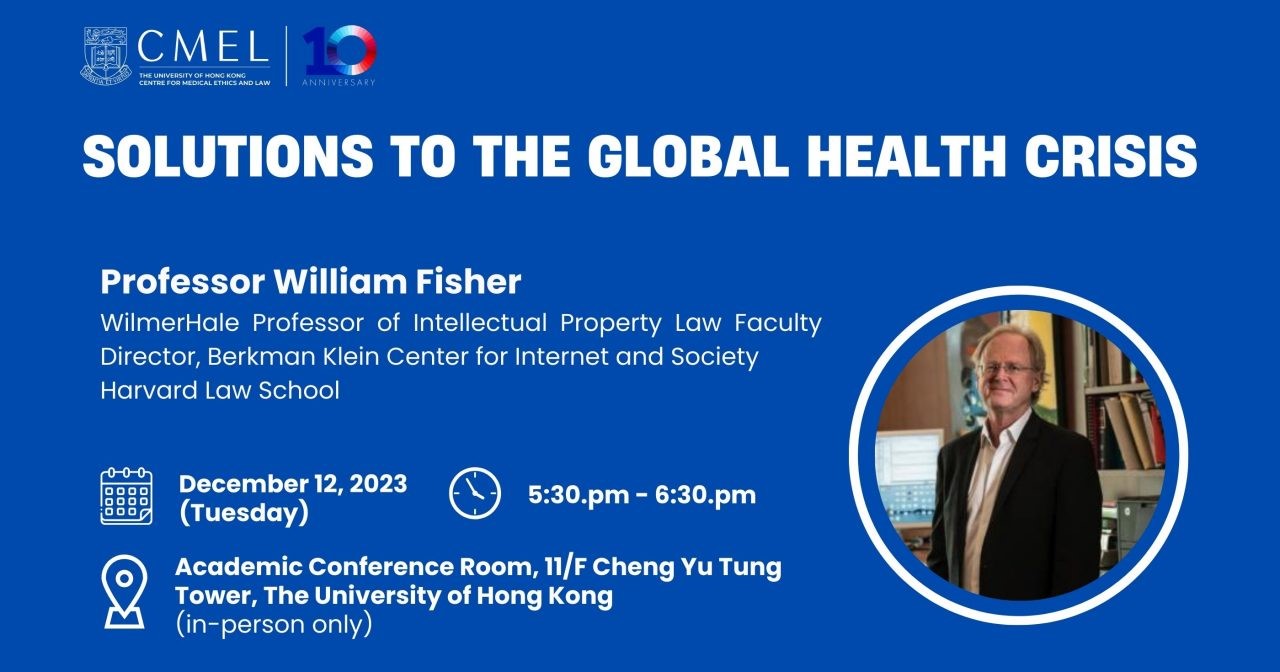
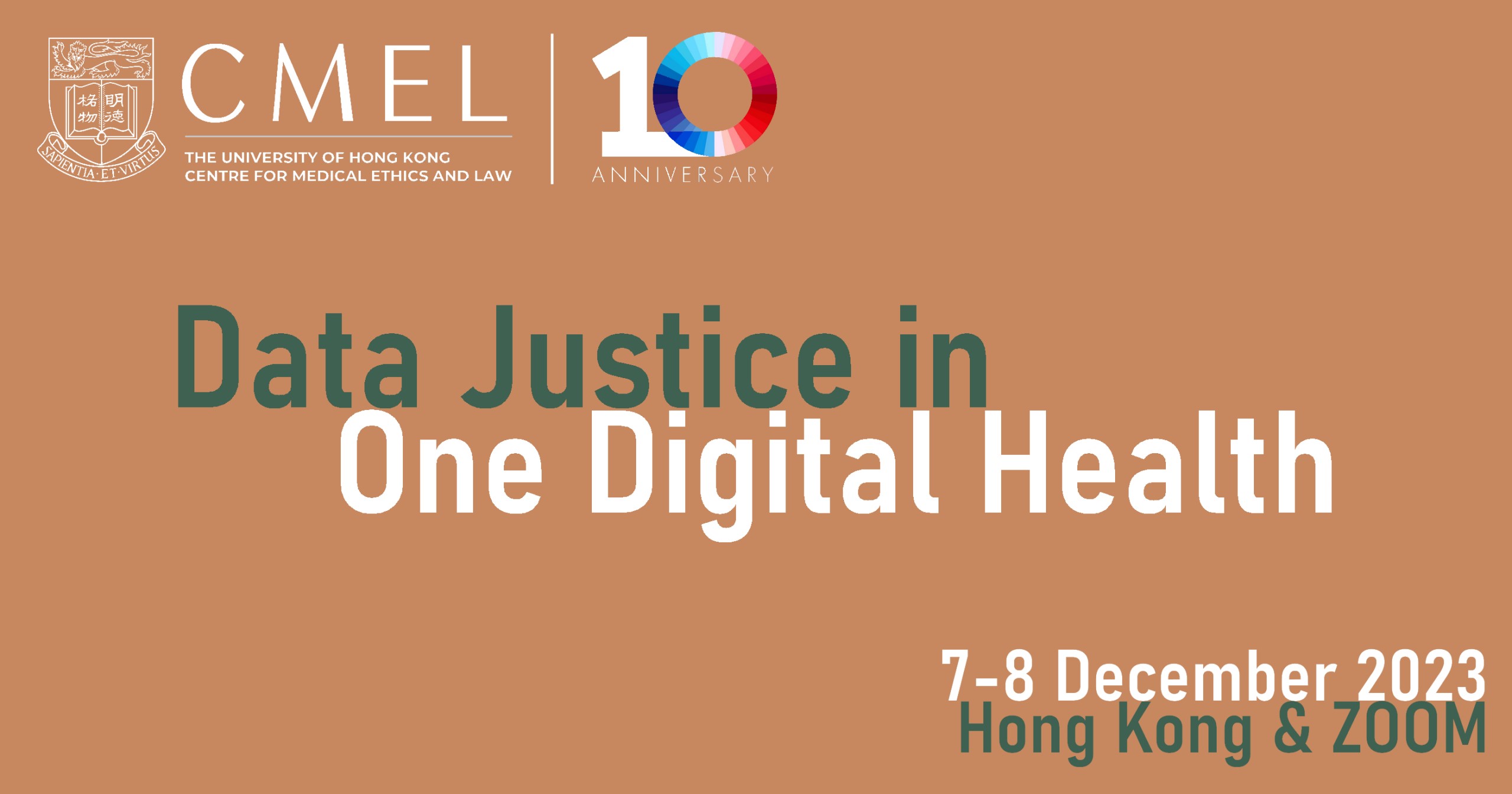
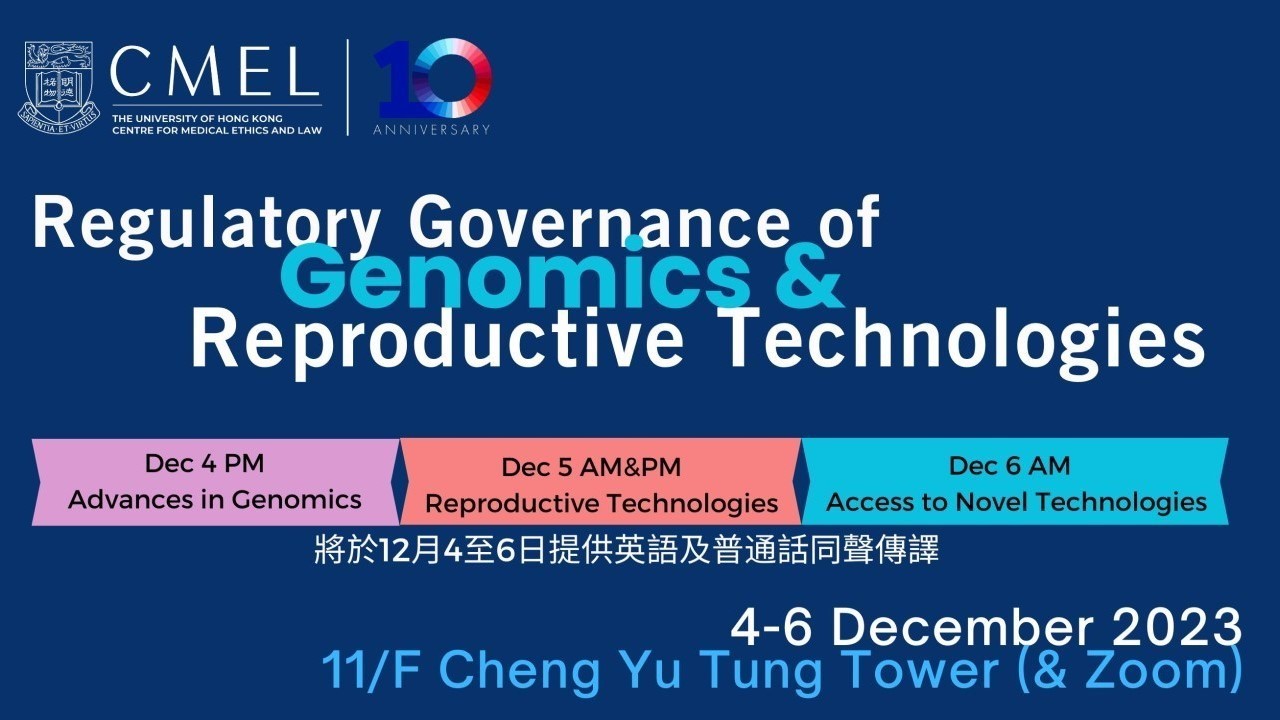
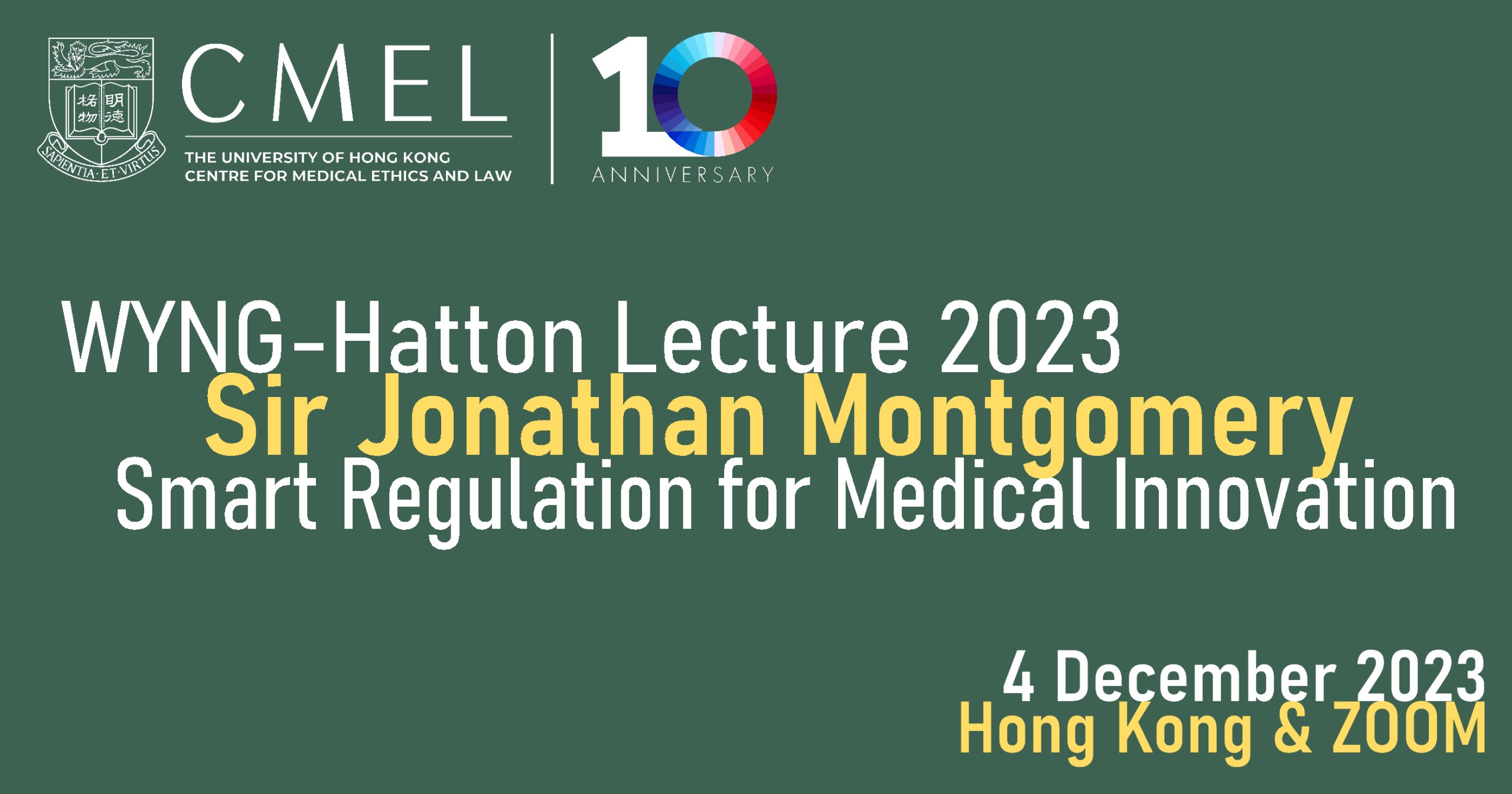

Follow HKUMed